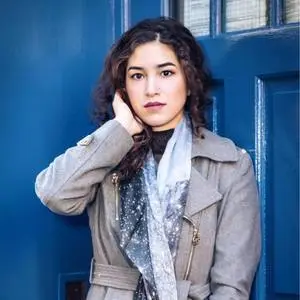College is stressful. Especially if you have a mental illness. In the 2012-2013 school year alone, over 48% of college students attended counseling for mental health concerns. The second most common mental illness in college students is depression, according to the American Psychological Association 36.4% of college students experience some level of depression.
Mental health has been stigmatized for years. It’s dirty laundry and you don’t want to show it. You don’t want to admit you need help. It’s gotten to the point where 1 in 4 college students have a diagnosable illness and 40% (or more) of them don’t seek help.
Of those students, at least half don’t use their campus resources for mental health help or academic accommodations. However, you can’t just blame society for that, some campuses are incredibly vague about accommodations on purpose. The Services for Students with Disabilities at my school told me that when I was applying.
Mental illness doesn’t just go away
To give you a reference point, I’ve been living with depression for over 12 years. And I’m only 23. I’m not just some rando who’s trying to commiserate with you. What I have is known as persistent depressive disorder, which is sometimes called dysthymia. This is not major depressive disorder, you can have both at the same time, which is known as double depression.
Life with depression kind of sucks. And when you have it in college and are diagnosed you don’t always know what to do. Plus, no one really knows what you need to hear unless they’ve been there too. Well, I’ve been there and I know what I wish someone had told me before I got to college. Hell, before I became functioning adult would’ve been nice.
1. Your school has a way for you to get academic accommodations for mental illness. It’s part of our rights under the Americans with Disablities Act.
2. You’re not crazy or weak. Just because people don’t talk about depression doesn’t mean it’s not normal. If you talk to someone─especially a trained professional like a therapist or psychologist─it can do wonders.
3. It’s okay to take a semester (or more) off from school for your mental health. It might save your GPA and your sanity.
4. Drinking doesn’t help. Alcohol is a depressant, so binge-drinking and partying isn’t always the best option.
5. Medication really does help. I’m not kidding, nothing has helped me through the college experience more than taking medicine that actually works for me.
6. Find something you love and stick with it. It can be exercising, art, or cooking. It’s up to you. Cooking and baking are shown to help with mood.
7. Don’t stay in toxic relationships. Platonic or otherwise. If someone hurts you as person─or makes you feel like less than you are─it’s time to walk away. You need to love yourself, and sometimes that means cutting off someone who breaks you down.
8. You’re stronger than you think. I once had a friend who told me no matter how far I fell, he never saw me fail to get back up. Something I never realized I was doing as I didn’t even recognize the little victories I made. You’re your harshest critic, and your strength is what’s kept you here.
9. Just do your best. Believe me, often times that’s more than enough. Even if you feel like you’re not doing enough or putting forth as much effort as you think you need to, more often than not just trying your best makes things easier.
Depression has never been kind to me. Since I got college, it’s been a struggle. I can’t imagine that I’m alone in that. I’ve survived this long─and so have you. You can keep going. I know it’s not easy, but you’re not wrong for feeling the way you do. So, chin up and remember you are still here.


